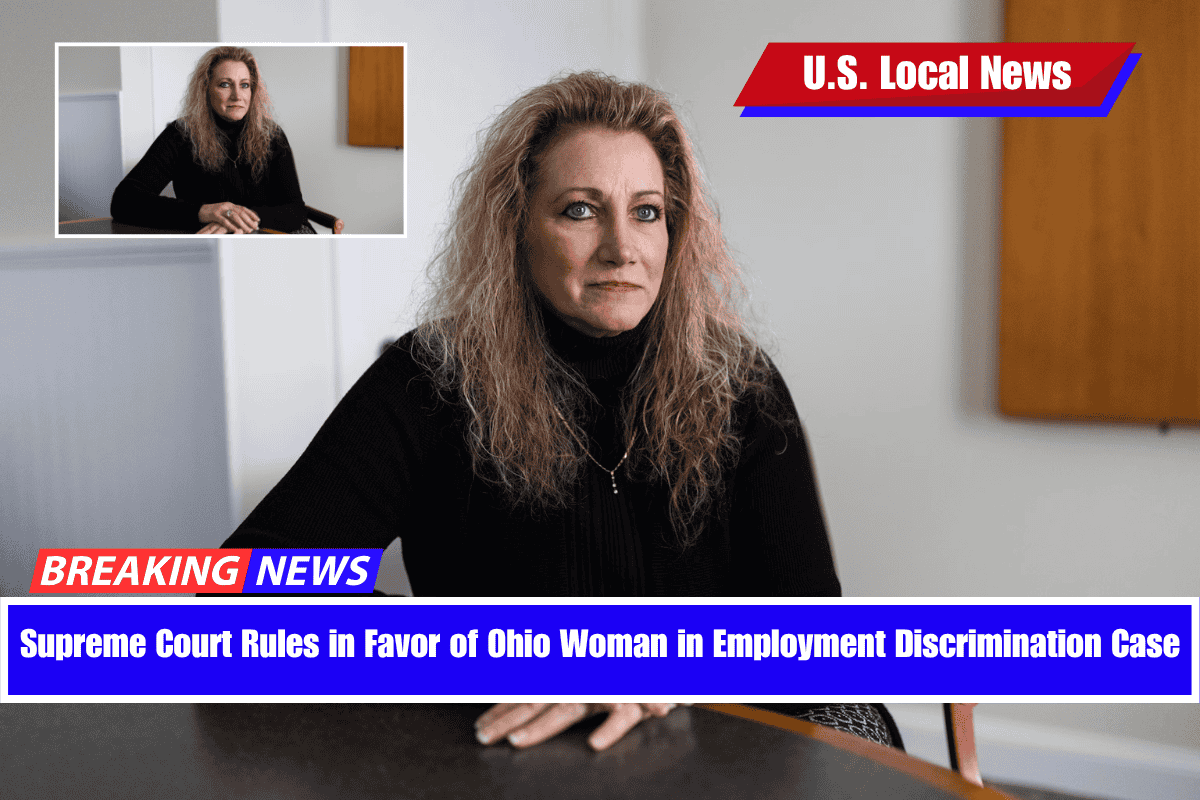The U.S. Supreme Court has delivered a unanimous ruling in favor of Marlean Ames, an Ohio woman who is seeking to bring an employment discrimination claim against the Ohio Department of Youth Services.
Ames alleges that she was denied a promotion and later demoted because of her heterosexual orientation, while gay candidates with lesser qualifications were selected for the positions.
The Case and Allegations
Marlean Ames, who had been employed at the Department of Youth Services for over 15 years, had consistently received excellent performance reviews throughout her career.
However, she claims that her employer discriminated against her based on her sexual orientation, selecting gay candidates for the positions instead of her, even though they were less qualified for the roles.
Ames’ supervisor at the time of the promotion was also gay, which added to her claim of discrimination based on her heterosexuality. The case revolves around whether Ames can pursue a Title VII lawsuit, which is protected under the Civil Rights Act of 1964, that prohibits discrimination on the basis of sex, including sexual orientation.
Justice Ketanji Brown Jackson’s Opinion
In delivering the opinion for the court, Justice Ketanji Brown Jackson addressed a critical legal question. She explained that, under the law, plaintiffs must show a prima facie case—meaning they need to demonstrate that there is sufficient evidence to support their claims.
The issue at hand was whether Ames, as a member of the majority group, should be required to provide additional evidence of “background circumstances” to support the suspicion that her employer discriminated against the majority.
The Supreme Court ruled that such a requirement was not consistent with the text of Title VII or with previous rulings. Justice Jackson stated, “We hold that this additional ‘background circumstances’ requirement is not consistent with Title VII’s text or our case law construing the statute.” The decision effectively overturned the Sixth Circuit Court of Appeals ruling, allowing Ames’ lawsuit to proceed.
The Implications of the Ruling
While the ruling means that Ames’ lawsuit can now move forward, it does not guarantee that she will succeed in her discrimination case against the Ohio Department of Youth Services. It simply allows her to present her case in federal court, where the Department will have the opportunity to defend itself.
The case highlights an important aspect of employment discrimination law and Title VII, which protects individuals from discrimination based on sex and sexual orientation. The ruling also underscores the importance of ensuring that discrimination claims are not unfairly dismissed based on a plaintiff’s status as part of a majority group.











Leave a Reply